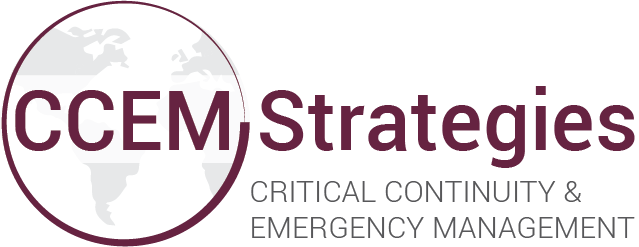We’re thrilled to share that CCEM Strategies is now certified by the Women Business Enterprises Canada Council (WBE Canada), a non-profit that’s opening doors for Canadian women-owned businesses by advocating for supplier diversity. To qualify for WBE certification a business must be independent and at least 51 per cent owned and run by women. Our founders Diane Radymski and Christine Trefanenko are trailblazers in what’s typically been a male-dominated field and this new certification validates their hard work, commitment, and reputation.
“Since forming CCEM Strategies in 2015, we’ve always done things a little bit differently than other consulting firms in the field of emergency management and business continuity,” said co-director Christine Trefanenko. “Plus, we’re women-owned and have a diverse team with international experience and professional backgrounds in variety of related fields,” she added.
“Our diversity and the well-rounded experience of our team has helped foster our unique approach of having a hands-on customized approach for our clients, whether they’re a small community or a large enterprise,” said Diane Radymski, co-director.
Why work with a WBE business?
The answer is simple. When you choose to work with a WBE certified company like ours, you’re demonstrating your commitment to diversity and inclusion. So, why is working with a women-owned business important? Did you know that in 2022, women-owned businesses accounted for only 17.5 per cent of all private-sector businesses in Canada?* When women-owned businesses have a more equitable access to business opportunities, incredible things can happen—like helping to drive innovation, nurture social values, and hasten economic growth. Plus, by working with CCEM Strategies you can meet your diversity goals and support your commitment to equity and inclusion.
About CCEM Strategies
Established in 2015, CCEM Strategies Ltd. is a Vancouver-based consulting firm providing a breadth of professional services to a diverse portfolio of clients in the private and public sectors, including (but not limited to) petroleum and natural gas, transportation, port terminals, forestry, tourism, and all levels of government, as well as Indigenous communities.
*Statistics Canada, Analysis on businesses majority-owned by women, Q2 2022

